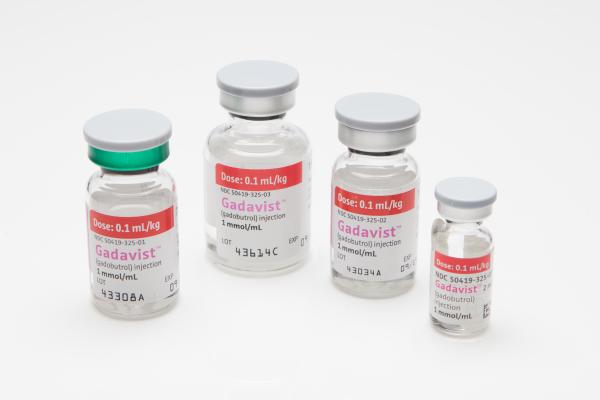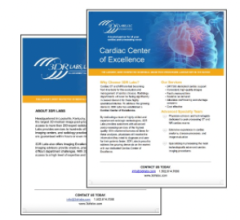
July 15, 2019 — The U.S. Food and Drug Administration (FDA) has approved Gadavist injection for use in cardiac magnetic resonance imaging (MRI) to assess myocardial perfusion (stress, rest) and late gadolinium enhancement in adult patients with known or suspected coronary artery disease (CAD). Gadavist (gadobutrol) is now the first and only contrast agent FDA-approved for use in cardiac MR, an important diagnostic tool for patients with CAD.
"Gadobutrol-enhanced cardiac MR demonstrated efficacy in a large global multicenter clinical trial," said Daniel S. Berman, M.D., FACC, chief of cardiac imaging and nuclear cardiology at the Cedars-Sinai Heart Institute and the S. Mark Taper Foundation Imaging Center. "The FDA approval is a landmark for making this validated, non-invasive method available to healthcare professionals to evaluate their patients for the most common form of heart disease in the world."
The approval was based on two multinational, non-randomized, blinded-read Phase 3 studies of almost 1,000 adults with suspected or known CAD based on signs and symptoms. Nearly 800 of those patients were evaluated for efficacy. First approved in 2011, cardiac MR is now the fourth FDA-approved indication for Gadavist.2
The Society for Cardiovascular Magnetic Resonance (SCMR) recognizes cardiac MR as a non-invasive tool that provides relevant and actionable information to healthcare professionals.3
"We now have an approved contrast agent for use in cardiac MR to assess perfusion and late gadolinium enhancement in less than one hour," said Scott Flamm, M.D., MBA, head of cardiovascular imaging, Cleveland Clinic. "A Gadavist-enhanced cardiac MR is a key diagnostic tool, providing additional important clinical information, which can help physicians manage their patients with known or suspected CAD."
A disease that affects approximately 16.5 million Americans, CAD develops when the major blood vessels that supply the heart with blood, oxygen and nutrients (coronary arteries) become damaged or diseased.1,5 Cholesterol-containing deposits (plaque) in the arteries and inflammation are usually the cause of CAD. When plaque builds up, it narrows the coronary arteries, decreasing blood flow to the heart. Eventually, the decreased blood flow may cause chest pain (angina), shortness of breath, or other coronary artery disease signs and symptoms. A complete blockage can cause a heart attack.4
For more information: www.radiologysolutions.bayer.com
References
1. Cleveland Clinic. Coronary Artery Disease. https://my.clevelandclinic.org/health/diseases/16898-coronary-artery-disease. Updated May 14, 2019. Accessed May 23, 2019.
2. Gadavist (gadobutrol) Injection. Prescribing Information. Whippany, New Jersey, USA: Bayer Pharmaceuticals, Inc.
3. Society for Cardiovascular Magnetic Resonance: Why CMR. (n.d.). https://scmr.org/page/WhyCMR. Accessed May 23, 2019.
4. Mayo Clinic. Coronary Artery Disease. https://www.mayoclinic.org/diseases-conditions/coronary-artery-disease/symptoms-causes/syc-20350613. Updated May 16, 2018. Accessed May 23, 2019.


 July 19, 2022
July 19, 2022 
